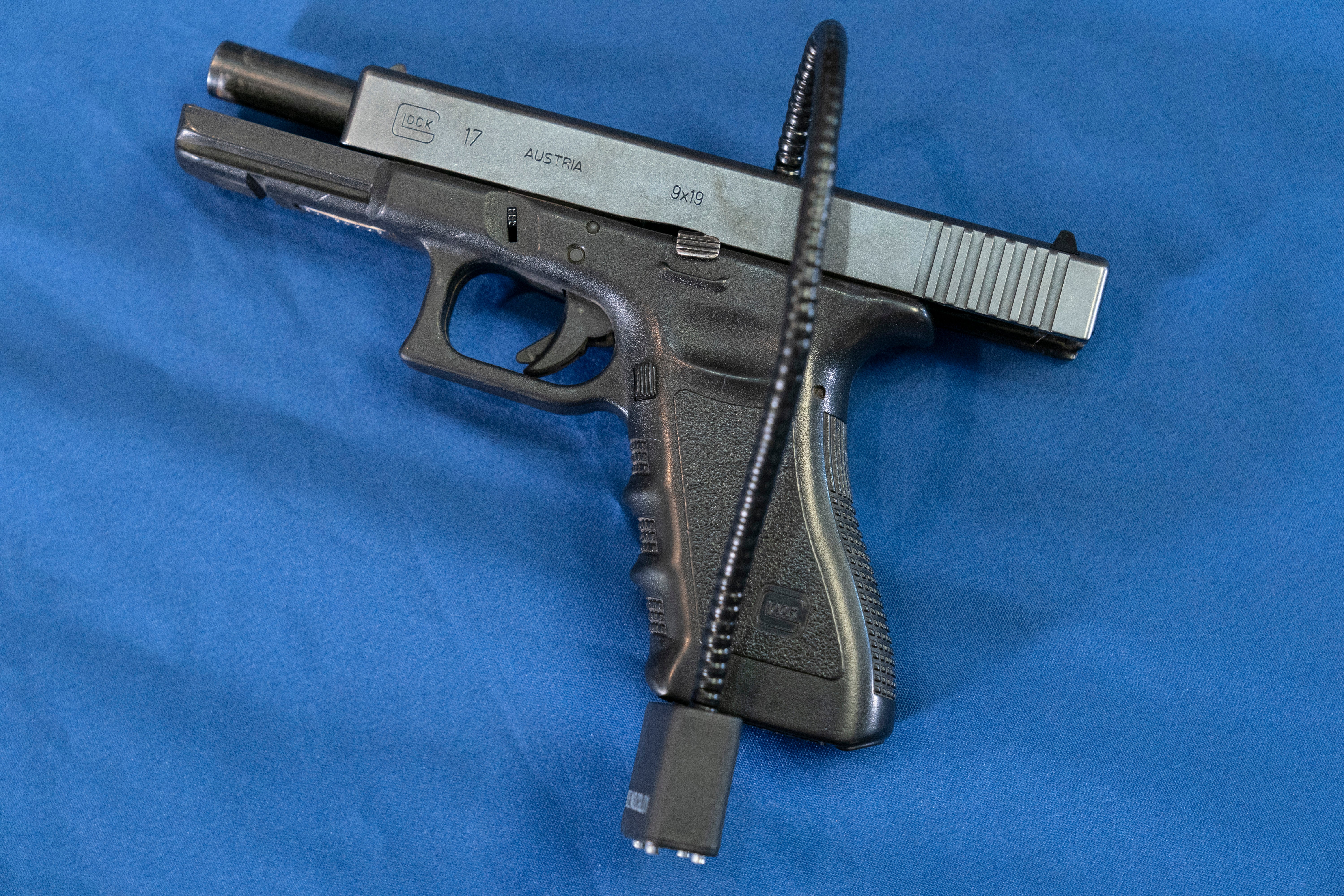Virginia judge says law banning sales of handguns to young adults is unconstitutional
A federal judge in Virginia has ruled that a law banning licensed federal firearms dealers from selling handguns to young adults under 21 violates the Second Amendment and is unconstitutional

A federal judge in Virginia has ruled that a law banning licensed federal firearms dealers from selling handguns to young adults under 21 violates the Second Amendment and is unconstitutional.
The ruling Wednesday by U.S. District Court Judge Robert Payne in Richmond, if not overturned, would prevent dealers from selling handguns to 18- to 20-year-olds.
In his 71-page ruling, Payne wrote that many of the rights and responsibilities of citizenship are granted at the age of 18, including the right to vote, enlist in the military without parental permission and serve on a federal jury.
“If the Court were to exclude 18-to-20-year-olds from the Second Amendment's protection, it would impose limitations on the Second Amendment that do not exist with other constitutional guarantees,” Payne wrote. “Because the statutes and regulations in question are not consistent with our Nation’s history and tradition, they, therefore, cannot stand.”
Payne's ruling is the latest decision striking down gun laws in the wake of a landmark Supreme Court ruling last year that changed the test courts have long used to evaluate challenges to firearm restrictions. The Supreme Court said judges should no longer consider whether the law serves public interests, like enhancing public safety. Governments that want to uphold a gun restriction must look back into history to show it is consistent with the country’s “historical tradition of firearm regulation,” the Supreme Court said.
Amid upheaval in the months since that ruling, courts have declared unconstitutional laws including federal measures designed to keep guns out of the hands of domestic abusers and defendants under felony indictment, as well as a ban on possessing guns with the serial number removed. A federal judge recently cited the high court decision in ruling against a Minnesota law prohibiting 18- to 20-year-olds from getting permits to carry handguns in public. A judge struck down a similar law last year on gun restrictions for young adults in Texas.
Payne, who cited the 2022 Supreme Court ruling repeatedly in his ruling, wrote that the government failed to present “any evidence of age-based restrictions on the purchase or sale of firearms from the colonial era, Founding or Early Republic.” The lack of similar regulations from those time periods indicates that the “Founders considered age-based regulations on the purchase of firearms to circumscribe the right to keep and bear arms confirmed by the Second Amendment,” he wrote.
John Corey Fraser, 20, along with several other plaintiffs, challenged the constitutionality of the Gun Control Act of 1968 and the associated regulations from the Bureau of Alcohol, Tobacco, Firearms and Explosives after they were turned down when they tried to buy handguns.
“Even though it ensures that future buyers can now purchase these firearms in the federal system — one that includes background checks and other requirements — we expect the defendants will appeal," said Elliott Harding, Fraser's attorney. He said he is optimistic that the ruling will be affirmed.
Harding said the lawsuit was aimed at “closing a loophole” because 18- to 20-year-olds can already buy handguns from private sellers, a process that is “completely unregulated.”
“This allows them to go in and buy a registered firearm, direct from a manufacturer, but they’ll also go through background checks," he said. “They have to go through the traditional steps in purchasing a firearm.”
Everytown Law, a legal group that advocates for gun violence prevention in the courts and has filed a brief supporting the age restrictions, said the law is constitutional and an essential tool for preventing gun violence.
“Not only are guns the leading cause of death for U.S. kids and teens, but research shows us that 18- to 20-year-olds commit gun homicides at triple the rate of adults 21 years and older," said Janet Carter, Everytown Law's senior director of issues and appeals.
“The Court’s ruling will undoubtedly put lives at risk," she said. “It must be reversed.”
The Justice Department and Bureau of Alcohol, Tobacco, Firearms and Explosives did not respond to emails seeking comment on the ruling.
___
AP Legal Affairs Reporter Alanna Durkin Richer contributed to this report from Boston.